
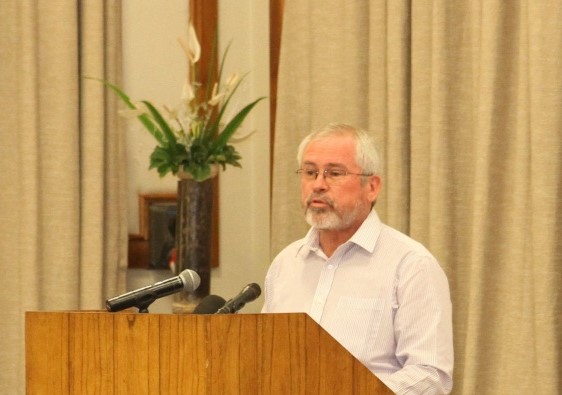
Maurice Loustau-Lalanne, the New Minister of Tourism for Seychelles to be sworn in
Following the approval by the Seychelles National Assembly Ambassador Maurice Loustau-Lalanne is scheduled to be sworn in Friday morning as the new minister of Tourism, Civil Aviation, Ports & Marine by President Danny Faure. The president expressed his appreciation for the support of the Members of the National Assembly.
President Faure said that Minister Loustau-Lalanne would hold the portfolio for Tourism, Civil Aviation, Ports & Marine.
Former Minister Alain St.Ange surprisingly announced his resignation yesterday to open his schedule and continue his campaign to become the new Secretary-General of the United Nations World Tourism Organization (UNWTO)
In March of 2011 Seychelles President, Mr. James Michel had appointed Ambassador Maurice Loustau-Lalanne has the Acting Executive Chairman of Air Seychelles for a three-month period, following the resignation of Captain David Savy.
In 2008 he was the CEO and chairman of the Seychelles Tourist Board (STB). In 2015 Ambassador Maurice Loustau-Lalanne was the Principle Secretary for Foreign Affairs.
In June of 2015 he was appointed Secretary of State.
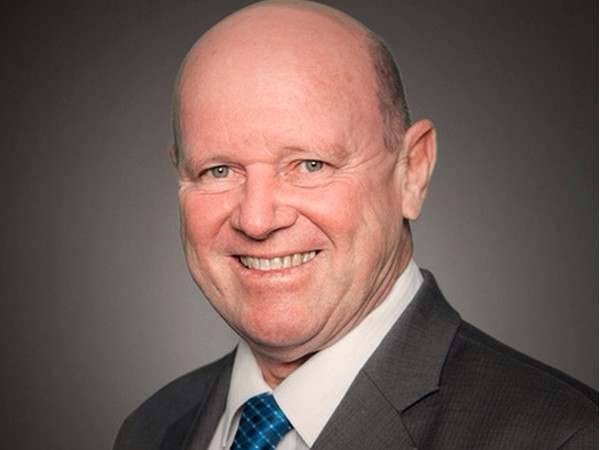
Alain St.Ange resigned as Minister to enter UNWTO race for Secretary General
The outspoken and most active and out of the box thinking ministers of tourism resigned. The Seychelles Minister of Tourism, Civil Aviation, Ports & Marine presented his letter of resignation to the Seychelles President Danny Faure.
His reason: He wants to enter the ever bigger getting race to become the UNWTO Secretary General. He will be the second African minister entering the race.
St. Ange joined the Government of Seychelles in early 2009 as Director of Marketing at the Seychelles Tourism Board and a year later, in June 2010, he was promoted to the position of CEO of the Tourism Board falling under the Office of the President. On the 14th March 2012, Mr St.Ange was appointed as Minister responsible for Tourism and Culture, a position he held until the recent Cabinet of Minister reshuffle of 2016, when he was given more responsibility as head of the Ministry of Tourism, Civil Aviation, Ports and Marine.
In his letter of resignation Minister Alain St.Ange writes:- “As part of the Government I have been able to serve my Country and the People of Seychelles in a way that made a positive difference to the lives of so many as I also did my part for the economy of our Country. During the time when I was part of the Government, I know that I worked tirelessly for our country’s tourism industry and the results today speak for themselves. The Ministry initiated a lot and, with the support of the private sector, we delivered for Seychelles”.
Over a year ago the name of Minister Alain St.Ange was mentioned as a possible candidate for a position at an International Organisation. “The time to formally put my name forward as a candidate has arrived and I will need to be undertaking some travel from very early in January for this coming election. The extended absence from the office and from the country will not be conducive to my existing position” Minister St.Ange said asking the President to accept his resignation.
“I take this opportunity to thank the Government and People of Seychelles for my time as Minister and I wish Seychelles continued success,” Minister Alain St.Ange said.
A Press Release from the Office of the President of Seychelles confirmed Minister Alain St.Ange had written to President Danny Faure expressing his intention to apply for the post of the Secretary-General of the Untied Nations World Tourism Organisation (UNWTO).
In accepting the resignation, President Faure thanked Minister St.Ange for the enormous contribution he had made to the promotion and development of tourism and culture in Seychelles, and for his support and advice on many matters discussed in Cabinet.
President Faure had also written to the Speaker of the National Assembly, seeking the Assembly’s approval for the appointment of Ambassador Maurice Loustau-Lalanne as Minister.

The KAZA Univisa Re-Launched between Zimbabwe and Zambia
Zimbabwe and Zambia relaunched their Kavango Zambezi Transfrontier Conservation Area (KAZA) Univisa on 21 st of December 2016 at a dazzling ceremony hosted by the Ministers of Home Affairs from both countries in Livingstone, Zambia. The countries’ Ministers of Tourism Hon Dr Walter Mzembi, the Minister of Tourism and Hospitality Industry of Zimbabwe, the current UNWTO Regional Commission for African Chairperson and the
African Union (AU) candidate for the UNWTO Secretary General post for the elections to be held in 2017, and his Zambian counterpart, Minister of Tourism and Arts of Zambia, Hon Banda (MP) who is also the Vice Chairperson of the UNWTO Executive Council, also put their signatures on the Agreement, sealing its implementation that kicked off immediately after the signing ceremony on the same day.
The event, which was punctuated by worldclass artistic performances from both countries, marked the resumption of a common Univisa between Zimbabwe and Zambia which will soon be expanded to Angola, Botswana and Namibia in the second phase, and later on incorporate Mozambique, South Africa and Swaziland. Eventually, it will cover the entire SADC region which is a sub-regional economic bloc of fifteen countries. Tourism Industry players from both countries were in attendance.
The KAZA Univisa, which is a legacy project initiated by the two countries during the 20 th Session of theUNWTO General Assembly is a huge milestone in the history of travel in which the UNWTO General Assemblyhas left permanent footprint. The 20 th Session General Assembly held by Zimbabwe and Zambia wasdescribed by the UNWTO Secretary General Dr Taleb Rifai as “the best ever General Assembly in the historyof General Assemblies” during the opening ceremony in Victoria Falls, Zimbabwe in 2013, and credit goes to
Minister Mzembi and his Zambian counterpart for working hard and demonstrating that the Ministers have thecapacity to organize and host global events.
It is not by coincidence that the African Union has put forward Hon Dr Walter Mzembi as its sole candidate forthe post of UNWTO Secretary General that falls vacant in 2017 with election expected to be held in Spain inMay, 2017. It is interesting to note that in the history of the UNWTO, African has not had an opportunity toprovide a Secretary General while Europe has held the post on three occasions, the Americas once and thecurrent one, Dr Taleb Rifai is from Jordan in the Middle East. It is therefore imperative that in the next electionin May, the world is highly expected to show magnanimity recognizing an unofficial principle of rotation so thatit allows other regions to provide a candidate to the organization going forward. Dr Walter Mzembi that the
African Union have endorsed, is a pragmatic man who comes with his craft competences and his commitmentis undoubted. Over the years, he has demonstrated humility, willingness to learn from the current Secretarygeneral and indeed, has reached out to all the Six UNWTO Regional Commissions that has given him deepinsight of the critical issues that need redress across the globe to make tourism work for everyone. The is an adage that says, charity begins at home and he has shown clear vision and taken practical steps in championing the creation of a common visa in the Southern African Development Community (SADC) region by being the fulcrum anchoring the debate and call for seamless travel as a way of facilitating tourism, trade and investment as he says “all things start with travel in the Travel-Travel- Invest matrix.” Over and above that he is an ardent advocate of the “open skies policies” as he is fully aware that 54% of international arrivals realized in 2015, reached their destination by air hence it is critical to prioritize and allow destination accessibility and seamless movement of people as quickly as is possible. His philosophy in opening up not only in Africa, but across the globe is a sound pragmatic proposition that resonates with his vision which ultimately facilitate regional growth of tourism with equity. The Univisa that Dr Mzembi signed allows visitors from 65 countries to travel between Zimbabwe and Zambia using the same document, and the announcement and signing of the agreement was welcomed by the tourism fraternity.
In his remarks, Dr Mzembi said “I am delighted for this privilege to make history. All of us are here because ofour commitment to see a definitive seamless travel between the two countries and indeed, the whole Kavangogreat Vision by the leaders of the two countries to have seamless travel because the Agreement had takentime to be concluded. He said, this will not happen again in the future. He reminded other Ministers presentthat the world is fast becoming a more open global village in terms of travel openness, and key among the enablers is visa liberalization globally and open skies.
According to the Africa Visa Openness Report published by the Africa Development Bank (AfDB) in 2016, Southern Africa was lagging behind in the visa openness index. The same report notes that 75% of countries in the top 20 most visa-open countries are in West Africa and East Africa. It is not by coincidence that the East
Africa Common Tourist Visa involving Rwanda, Uganda and Kenya has seen 25% growth in tourist arrivals in the past year. The three East African countries have popularized their destinations as a collective at Travel Shows, and one good example was at the World Travel Market-2016 held in London. Currently, Rwanda’s leading economic pillar is tourism owing to its visa openness. With Zimbabwe and Zambia back in the fold of increasing their visa openness, the index of the two countries on travel facilitation is likely to improve.
Hon Dr Mzembi reminded people and colleague Ministers present that there was no magic in tourism than opening up the destination. He cited the Christian Bible Isiah 60:11 “Keep thy Gates open, do not close them during the day, do not close them during the night so you may enjoy the wealth of the Gentiles with their Kings in triumphal procession” as the philosophical foundation guiding tourism destinations so that they may enjoy the wealth of other countries. He further reminded delegates of the triumphal processions from 1 Kings 10 (1 -3), and quoted the Queen of Sheba when visiting King Solomon “Arriving at Jerusalem with a very great caravan (convoy) – with camels carrying spices, large quantities of gold and precious stones”.
“This is the wealth referred to by Isiah, which many of the tourists who visit destinations carry, arriving with money that they spend in destinations. But, what is key is that the Queen of Sheba went on to endorse the destination reminiscing about her experiences, and she says “The report I heard in my own country about your own achievements and your wisdom is true” said Dr Mzembi.
Manifest to this, is the testimony of the 20 th Session of the UNWTO General Assembly hosted by the two countries, which bid Dr Mzembi together with Zambia were at the forefront and won to host the event in Livingstone and Victoria Falls in 2013 where delegates were surprised and charmed by the Hospitality, the Peace, Security, pristine flora and fauna of the destinations, which today remain a huge competitive edge as far as tourism in the sub-region is concerned. By signing the KAZA Univisa Agreement for a permanent common visa, the two countries have taken giant steps to deliberately open up to boost tourism arrivals.
In Africa, Ghana, has completely opened up to African nationals who receive visas on arrival following thefootsteps of Rwanda that did the same in 2014. The African Union also launched the African Passport in July 2016, Kigali, Rwanda at the 27 th African Union Summit Heads of State and Government Summit, which, at that level, also endorsed Hon Dr Walter Mzembi as its UNWTO Candidate for the post of Secretary General. Thus,visa openness and the move towards a common passport are key milestones that should give Africa hope to integrate. The idea of an Africa with seamless borders is the way to go. Africa is endowed with vast natural resources including wildlife, unrivalled tourism products, minerals and rich soils, but its performance has been fluctuating at a paltry 3-5% according to the UNWTO. If Africa can combine its strengths, it has huge potential to unlock value of the tourism for revenue generation since tourism is a low hanging fruit, and some of the structural reforms needed is destination openness that Hon Dr Mzembi is championing.
During the same meeting, Hon Mzembis said “If we have set our minds on leveraging tourism for rebuildingand recovery of our economies, we must do so unabated. Tourism is the lowest hanging fruit ready for picking.
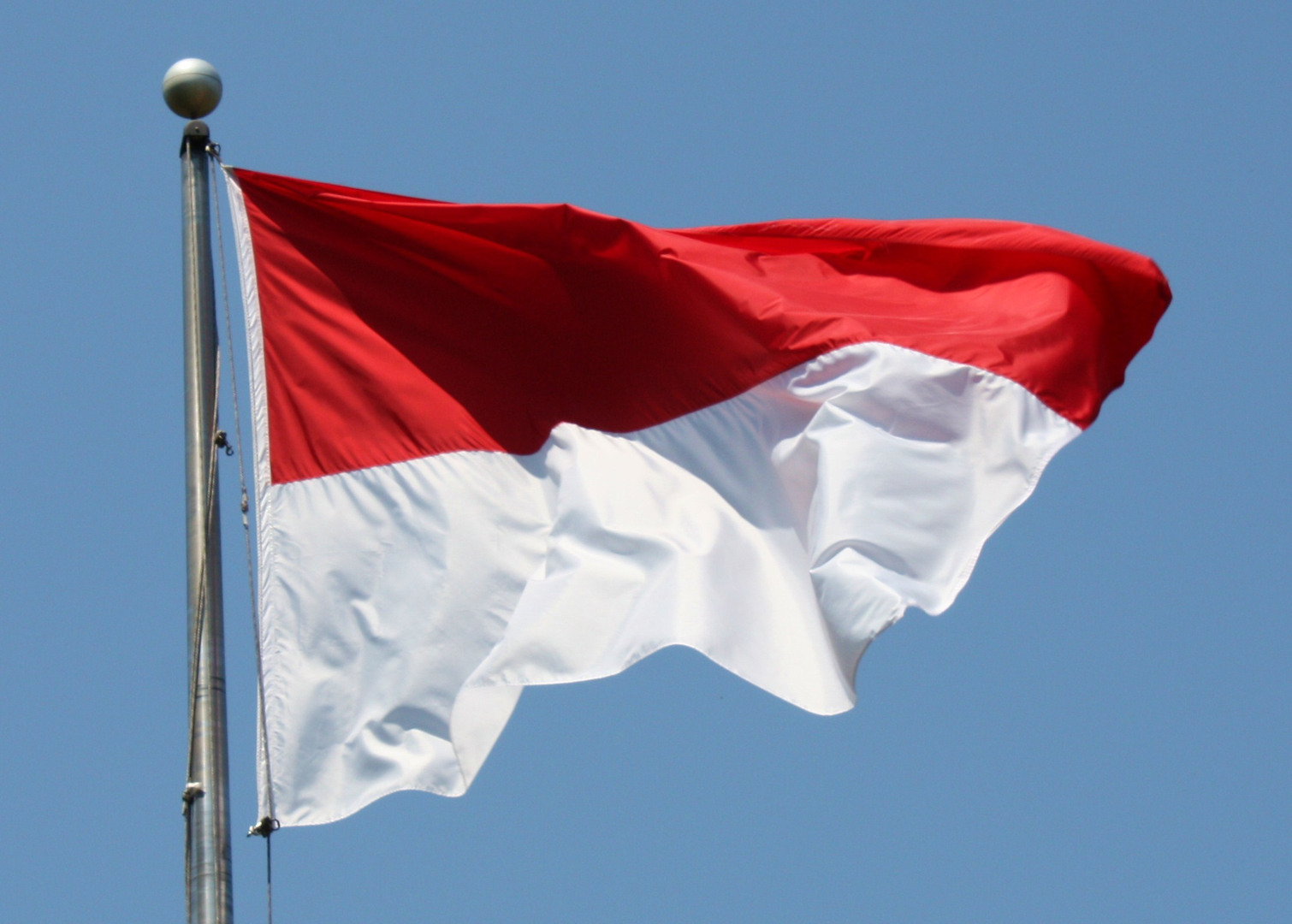
Poland to host 3rd International Congress on Ethics and Tourism: promoting shared responsibility
Coinciding with the International Year of Sustainable Tourism for Development to be celebrated throughout 2017, the third International Congress on Ethics and Tourism will be held in Poland, on 27-28 April 2017. Organized by the World Tourism Organization (UNWTO) in collaboration with the European Commission (EC) and the Government of Poland, the event will focus on the shared responsibility of all stakeholders in promoting a more sustainable tourism sector.
Held in the framework of the UNWTO Global Code of Ethics for Tourism and the Sustainable Development Goals (SDGs), the Congress will discuss the global sustainability agenda, particularly issues of governance and corporate social responsibility (CSR), responsible consumption patterns, universal accessibility as well as effective management models for natural and cultural resources.
On the agenda are also inclusive tourism practices that contribute to socio-economic empowerment of local communities and individuals and spread the benefits of tourism development, notably to women, youth, indigenous people and persons with disabilities. The Congress will further highlight the competitive advantages of investing in a more inclusive and diverse tourism sector.
“With more than 1.2 billion international tourists crossing international borders in one single year and the prospects of continuous growth, it is crucial that we manage growth in an ethical and responsible manner” said UNWTO Secretary-General, Taleb Rifai. “The tourism sector needs to build equitable partnerships and adopt effective national policies and sustainable business strategies in all areas of development.”
The 3rd International Congress on Ethics and Tourism is organized in the framework of the cooperation between UNWTO and the Directorate-General for Internal Market, Industry, Entrepreneurship and SMEs of the European Commission (DG GROW), with the support of the EC and the Government of Poland.
“I have gladly accepted the decision of the World Tourism Organization to choose Poland as a host for the third edition of the International Congress on Ethics and Tourism” said Witold Bańka, Minister of Sport and Tourism. “Poland is actively channeling efforts to implement ethical standards among the tourism organizations in their everyday business. I am confident, that the great atmosphere of Krakow, one of the most beautiful sites in Europe will foster thoughtful discussions and yield positive results of the Congress – added Mr Bańka.
The event will include the signing ceremony of the Private Sector Commitment to the UNWTO Global Code of Ethics for Tourism by a group of prominent companies and trade associations with sound CSR policies and strategies.
About the ‘Enhancing the Understanding of European Tourism’ Project
‘Enhancing the Understanding of European Tourism’ is a joint project by UNWTO and the Directorate-General for Internal Market, Industry, Entrepreneurship and SMEs of the European Commission (DG GROW). The project aims to improve the socio-economic knowledge of the tourism sector, enhance the understanding of European tourism and contribute towards economic growth, job creation, thus improving the competitiveness of the sector in Europe. The project includes three components: 1) increased cooperation and capacity building in tourism statistics; 2) assessment of tourism market trends; 3) promotion of cultural tourism through the Western Silk Road and; 4) promoting sustainable, responsible, accessible and ethical tourism.
The project is co-financed with COSME funds and will run until February 2018.
Useful links:
UNWTO Ethics and Social Responsibility Programme
World Committee on Tourism Ethics
UNWTO Global Code of Ethics for Tourism
UNWTO Private Sector Commitment to the Global Code of Ethics for Tourism

Jordan: Travel warnings more dangerous than terrorism
What is more dangerous? 20-30 people shot in a city every weekend, or one tourist murdered in an entire country? Both are sad cases in our modern world, but the answer here is surprising.
The city is Chicago in the U.S. State Illinois. Travel and tourism and specifically conventions are big business there.
The country is Jordan. A Middle East nation sandwiched in between trouble spots: Palestine, Israel, Syria and Iraq, but in general extremely safe and welcoming to visitors,
In Chicago, 20-30 people get shot every weekend in different incidents. There are no travel warnings against the City or the United States as a country, except a recent watch issued by the Turkish government.
There is Jordan. An economy very much dependent on travel and tourism. A country recognized for its hospitality and excellent tourism infrastructure. A kingdom that is located in a hotspot of the world but managed to remain safe. A travel destination showcasing thousands of years of history. Tourism is everyone’s business in a country like Jordan. It’s a lifeline and it has been given priority.
Just before Christmas The United States of America warned it’s citizens, including citizens living in Chicago to travel to Jordan and Egypt. The reason: The Islamic State claimed responsibility on Tuesday for a series of shootings on police and tourists in Jordan over the previous weekend that killed ten people, including a Canadian woman.
Jordan has been an example in a troubled world when it comes to staying out of trouble, specifically when it comes to travel and tourism. This had not changed even after last week’s incident.
Realistically, the chance a tourist would get caught in an incident has about the same odds a tourist gets hit by lightning twice.
The same is true in other countries. A terror attack on tourism last week targeting a Christmas market in Berlin, Germany was terrible, but the chance for a tourist to be caught in a terror attack in Germany is like winning the lottery twice. Days after the attack Germany look like a destination of widespread terror in the world’s public opinion. This is wrong and it multiplies the desired outcome a terror organization can only hope for.
Tourism is a major foreign currency earner in Jordan and a major part of the economy in the Kingdom. Jordan has an excellent tourism infrastructure, it has trained and educated experts ready to show tourists thousands of years of history. Tourists taste some of the best food in the world and enjoy exploring the many shopping options, the beach in Aqaba or the Dead Sea. Hearing the silence of the desert is what the Beduin guide wants a tourist to “hear” It’s a wonderful experience.
It would be in the interest of countries including the United States to assist the travel and tourism industry in Jordan to function and to expand. Travel warnings should be analyzed and explained by an independent source. Naturally, countries have an obligation towards its citizens, but an international organization like the UNWTO could analyze a warning from a global perspective and come up with an independent and recognized version for the world. UNWTO should take a lead finding a solution within its own system or within its partner network.
The travel and tourism industry creates and maintains jobs for a young generation of Jordanians with great challenges. No one wants Islamic State to recruit frustrated young jobless people in Jordan with no outlook to a better future.
Jordanians are highly trained and motivated and tourism is not only considered a job but a lifestyle and an industry to belong to. Tourism is Peace, and Jordanians know this. His Majesty the King of Jordan has personally supported the International Institute for Peace Through Tourism.
In the United States a young generation often unable to identify where they should belong to join racist motivated gangs, get involved in shootings and violence or become drug addicts. In Jordan, the danger to fall for Islamic extremist is a real danger. It’s in everyone’s interest to keep tourism flourishing and send a message of hope – and a travel warning may have a devastating effect.
Jordanians are protective to tourism and travelers. It makes this country safe and welcoming.
Travel warnings are a bigger threat to the Kingdom than terrorism. Terrorism is present, but it’s even more present in Paris, Nice, Brussels, Berlin or Istanbul. It’s present in a different form in the United States- and it kills more people. In Chicago, dozens of people get shot every weekend, but it’s not called terrorism.
The world needs to work together and find a way to explain the truth and fine print in travel warnings for a concerned traveler.
This article reflects the opinion by Juergen Steinmetz, chairman of the International Coalition of Tourism Partners. Steinmetz participated in a recent UNWTO conference in Jordan, that created the Petra Declaration.

UNWTO presents the 3rd UNWTO World Forum on Gastronomy Tourism
The World Tourism Organization Headquarters in Madrid, Spain, hosted today the presentation of the 3rd UNWTO World Forum on Gastronomy Tourism. The event will be held in Donostia-San Sebastian, Spain, on 8-9 May 2017.
The Forum is organized by UNWTO in collaboration with UNWTO Affiliate Member, the Basque Culinary Center, as part of the activities of the UNWTO Gastronomy Network. The third edition will be dedicated to the links between gastronomy tourism and sustainability in the framework of the 2017 International Year of Sustainable Tourism for Development.
The first edition of the Forum took place in Donostia–San Sebastian, the second edition in 2016 in Lima, Peru, and in 2017 the Forum will return to Donostia–San Sebastian, where it is to be held every two years.
The presentation was attended by UNWTO Secretary-General, Taleb Rifai, the State Secretary of Tourism of Spain, Matilde Pastora Asian González; the Vice Councilor of Commerce and Tourism of the Basque Government, Isabel Muela; the Director of Tourism of the County Council of Gipuzcoa, Maite Cruzado and the Councillor of Donostia-San Sebastián, Ernesto Gasco and the Director General of the Basque Culinary Center, Joxe Mari Aizega.
“The relation between food and culture has become a major motivation for travelers, but also a great catalyst of sustainable tourism as gastronomy tourism brings out the most authentic features of each destination” said UNWTO Secretary-General, Taleb Rifai at the presentation of the Forum.
“Gastronomy tourism has an immense potential and is a priority for Spain’s tourism promotional strategy due to its increasing relevance, particularly in rural destinations. In 2015, 8.4 million international tourists, representing 12.3% of the total, engaged in some activity related to gastronomy” said Matilde Pastora Asian González, Secretary of State for Tourism of Spain.
The event will bring together leading experts in gastronomy tourism to discuss latest trends and to share case studies and innovative products. Topics will include the so-called ‘farm to table’ processes, sustainable product development, successful public policies and the benefits of gastronomy tourism.
“Gastronomy tourism is a flourishing phenomenon and our objective is to create a space to share, to reflect, to analyze and to work to improve tourism in this area” said Joxe Mari Aizega, Director General of the Basque Culinary Center.
The panel presentations will be complemented by working sessions giving all participants the opportunity to interact and share ideas. Parallel to the official programme of the Forum, a wide range of events will be conducted at a number of gastronomic hubs showcasing the rich variety of products offered.
On the occasion of the Forum, UNWTO will release the second volume of the Global Report on Gastronomy Tourism. The publication analyses current trends in gastronomy tourism and the methodologies involved in product development.
Additional information:
3rd UNWTO World Forum on Gastronomy Tourism website
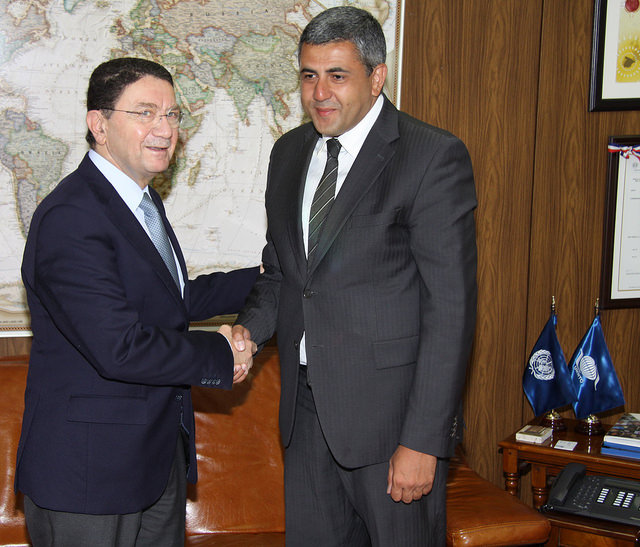
Georgia reveals multi-step plan for UNWTO’s future
Georgia wants to become the new leader of the United Nations World Tourism Organization. The current UNWTO Secretary-General Taleb Rifai will resign in 2017 and so far two candidates came forward wanting to take over the top post he had held for 8 years.
One candidate is from Georgia. He is H.E. Mr. Zurab Pololikashvili, Ambassador of Georgia to the Kingdom of Spain, Permanent Representative of Georgia to the World Tourism Organization (UNWTO). He laid out his plan for the future of UNWTO under his proposed leadership.
Statement of Intent and Management
The World Tourism Organization (UNWTO) has become an efficient platform providing leadership, guidance and support to the tourism sector in advancing knowledge and tourism policies worldwide.
Tourism has become the stepping-stone of nations’ economies and has turned into an effective mechanism to fight poverty around the globe. The sector has transformed cultural differences into alliances and has opened opportunities, assumed to have been gone forever.
With the rapid development of the tourism industry, it is of utmost importance for member states, associate and affiliate members, and the UNWTO overall, to maintain a commitment to sustainability and competitiveness. Looking to the future, we have to understand that the choices our nations make today will undoubtedly affect future generations. This is a responsibility that the UNWTO has proudly upheld for numerous years, and will continue to pursue.
Considering the aforementioned and building on the tremendous success of the organization, it is time to usher in a new era of applied initiatives. The UNWTO will put emphasis on concrete projects with tangible outcomes to further support its members in an era of innovation, knowledge-sharing, and entrepreneurship.
FUTURE OPPORTUNITIES AND STRATEGIC CHANGES
The UNWTO has become a staple of success in the tourism sector; the organization has paved the way for achievements of numerous nations, organizations and consequently people. The success stories of the organization have raised its visibility and importance throughout the world as well as increased awareness of its actions, while higher demand for support from the organization has led to increased functions.
Looking ahead, it should be our priority to pursue result-oriented changes and innovations and ensure that the UNWTO further rises to the challenges that countries face on national, regional and global levels.
The tourism sector is changing dynamically; today we are faced with social and cultural phenomena, which are re-shaping the industry, and it is important that we further understand and adapt to these changes. New challenges require new approaches and the UNWTO has to adjust to the upcoming encounters.
In this light, strategic changes need to be implemented on four fronts of the organization:
- Internal
- External
- Socio-economic
- Sustainability.
The aforementioned four undertakings will bring the UNWTO and the tourism industry to new heights of progress, achievement, and visibility.
INTERNAL SHIFTS
Considering that the UNWTO will be moving into a new era of more flexible and pragmatic implementation of projects, the internal workings of the organization will need to focus on the same goals.
The organization will adopt a new dynamic approach to implementing projects and supporting nations on a practical level. With this, the internal staff, alongside their existing tasks, will follow the new goal of helping member states, associate, and affiliate members to learn and take advantage of the offering that the UNWTO presents.
With this, the agenda and work-flow of the UNWTO will also be expanded to further support the aforementioned mission.
EXTERNAL ADJUSTMENTS
The UNWTO will be undertaking a new feat of supporting countries not just on the national and regional level, but will become more approachable to provide guidelines on management and marketing for different types of tourism destinations in order to ensure further growth and competitiveness.
The organization will consequently become a reference point for destination marketing and management organizations, both on national as well as local level.
With this, the UNWTO will continue to support the implementation of the Global Code of Ethics for Tourism, the prime principles to encourage tourism’s socio-economic contribution and manage possible impacts, and achieving the Sustainable Development Goals (SDGs).
SOCIAL PERSUASION AND SOCIO-ECONOMIC BENEFITS
Within the most recent years, it has become abundantly clear that apart from its direct economic benefits, the tourism sector can serve as an applied and effective mechanism in the fight against poverty worldwide; it has the capability and potential to empower communities and restore hope to those most in need.
In this light, it is our inherent and unwavering priority to continue on this path, to raise social awareness about tourism, persuade communities about the potential of the sector and assist their empowerment.
SUSTAINABILITY
Sustainability and protection of the environment have long been at the center of the work of the UNWTO. We have had success with reshaping the 10-Year Framework Program activities to support sustainable policies, actions and practices. Now that we have the Sustainable Development Goals (SDGs) approved, it marks another substantial step forward.
Although we have had considerable achievements, the issue of sustainable development remains a concern. We have to achieve a higher level of understanding of sustainability and have to exemplify that development is not hindered by sustainable practices or policies and that without sustainability at its core, no development is worth the tradeoff.
In order to achieve the aforementioned strategic objectives, I have identified seven priority issues which will become the focal points of my vision for the next four years.
1. Benefits for the member states, associate and affiliate members
Within the past decade the UNWTO has grown both in popularity and in members. Today, the organization unites 157 countries, 6 associate members and over 500 affiliate members. These members represent the diversity of ideas, resources, challenges and successes of the organization.
Focusing on member states, it is particularly important to understand that nations at various levels of development with regards to the tourism industry are sometimes faced with similar challenges.
Even in cases when challenges posed might be similar or relevant to a group of nations, the solutions presented in each country might be fundamentally different. To this point, the UNWTO needs to dive deeper and identify not only similar challenges; but cases where similar challenges have been resolved in similar environments; thus, presenting nations with the guidelines of practical steps to be undertaken to overcome their barriers.
In order to achieve this goal, alongside the UNWTO, affiliated members of the organization will play a key role thanks to their knowledge, research and practices.
By emphasizing the pragmatic benefits of UNWTO membership, the organization will be able to continue its growth in terms of members and uphold its key role as the frontrunner for tourism.
2. Continued integration with the United Nations
We have seen continued integration of the UNWTO with the agenda of the United Nations; this is a tremendously important process, as it provides the opportunity to present the key concerns, vision and sustainability initiatives on the world platform.
With this, the celebration of 2017 as the International Year of Sustainable Tourism for Development has to be viewed as one of the key successes for the industry and the UNWTO. It truly outlines the scope of the sector and will further raise awareness about possibilities and advancements, within the UNWTO, member states, and associate and affiliate members.
With this, we have to consider the unfortunate fact that in today’s world tourists need to be more wary of their travel environment. This is the reason why the UNWTO needs to continue its work to promote safe and seamless travel, and especially elevate its efforts with the United Nations Office on Drugs and Crime (UNODC). This will further support the integration of tourism into the emergency and security mechanisms; supporting safer and more secure travel practices across the globe. The UNWTO also need to continue supporting initiatives such as the joint campaign “Your Actions Count – Be a Responsible Traveler” launched in 2014, which supported the fight against illegal trafficking in its various forms and relevant issues.
Alongside other undertakings, we have to once again focus on pragmatic projects, and I truly believe that the declaration of 2018 as the European Year of Tourism and Cultural Heritage, and similar initiatives that involve concrete benefits, value and support, are the types of activities that will bring forward new successes for the UNWTO.
3. Enhancements in technology and its effects on tourism
We have to take into account continuous and dynamic development of technology in tourism. This process will only accelerate in the future, and as social behavior follows new trends, we will be faced with a new playfield. I strongly believe that cooperation and knowledge sharing is the only way we will have an opportunity to better understand the future travel behaviors and patterns.
The technology of today is already driving masses to new destinations, sometimes to places rarely explored by travelers, thus we have to seize this opportunity and create new destination management and marketing models to take advantage of these new platforms and support competitiveness, rather than dismissing their impact.
4. New dimension of support on local level
We are more aware of tourism’s effects and relations to other sectors than we have ever been before. We understand the delicate cohesion between local level destination marketing and management to the overall success and development of the tourism industry in nations. We are aware of the particularities and challenges of various destinations, and at the same time, we understand the reasoning behind successes and “best practices” of other destinations.
Considering the aforementioned, we need to enter a new phase of analyzing local level destination marketing and management practices. The UNWTO will not only focus on nations’ competitiveness regionally and globally, but will also have to place emphasis on local-level development. The UNWTO’s key role in this regard will be to analyze similar local level destination cases, not only in terms of successful practices, but also by identifying success stories in similar economic, social, environmental and tourism development level cases.

ICTP Chairman: Today we are all Berliners!
Juergen T. Steinmetz, chairman of the International Coalition of Tourism Partner issued the following statement:
“Yesterday we were all Jordanians, today we’re all Berliners.”
On behalf of the International Coalition of Tourism Partners, I would like to extend our sympathy and condolences to the victims and their loved ones involved in yesterday’s criminal attack in Jordan, and today in Berlin. Both incidents were senseless acts by disguised criminals aimed to disable the world’s largest industry: Travel and Tourism.
It took heroes like Jordanian law enforcement to prevent more harm, and it will take all of us, our community of travel and tourism professionals, to take leadership and encourage our clients and the public to consider traveling to amazing places including Berlin, Jordan, Egypt, Istanbul, Brussels, Nice, Paris, Kenya, Tunisia, and New York.
You may not see this in the headlines, but everything possible is being done in these great destinations and most other parts of the world to keep travelers safe.
Terror attacks make headlines, but we should not forget the proportion of criminal incidents a tourist could fall victim to, compared to a billion people traveling each year. The world, including those places that had been randomly hit by widely-publicized headlines, are safe and will remain safe.
In other places, criminal acts are becoming routine. Dozens are getting killed in Chicago every week by gunshots, and yet tourism, meetings, and conventions in the Windy City are booming.
Don’t let a handful of fanatics and criminals alter our way of life. Travel and Tourism is a contributor to peace and understanding. Travel and Tourism translate to jobs and prosperity for 10% of the world’s population. This makes our industry one of the largest economic players. Travel and Tourism must and will remain resilient.
Berlin is a great city, and Germany will remain a welcoming country and a model for this troubled world. Islam is a peaceful religion. The same counts for Christianity, Judaism, Hinduism, Buddhism. Not believing in a particular God, doesn’t mean believing in doing harm.
However, if you think hate and corporal punishment and randomly killing children, tourists, and old people attending a Christmas Market will get you to Heaven or Nirvana or the like, you will be in for a terrible reality. The reality is you are simply a criminal, and disrespectful of human life.
President Kennedy once said: “We are all Berliners!” And this becomes a true statement once again today.
The International Coalition of Tourism Partners (ICTP) is a grassroots Travel & Tourism coalition of destinations and stakeholders.
Green Growth + Quality = Business
For more information on ICTP and how to join members in 131 countries without any cost, please visit ictp.travel
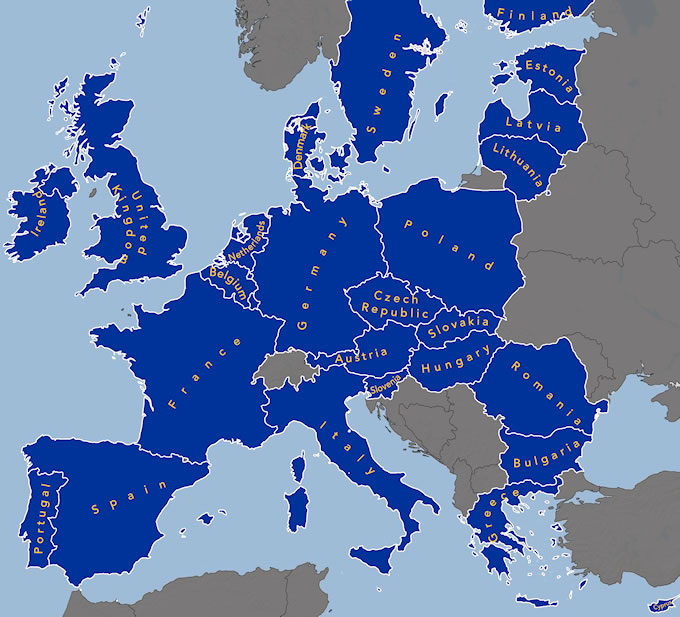
UNWTO strengthens its relationship with the European Union
During a recent visit to Brussels, Belgium, the Secretary-General of the World Tourism Organization (UNWTO), Taleb Rifai, has discussed how to reinforce the collaboration of the Organization with the European Union (EU).
Rifai met the EU Commissioners for Education, Culture, Youth and Sports, Tibor Navracsics; for Environment, Maritime Affairs and Fisheries, Karmenu Vella; and for International Cooperation and Development, Neven Mimica. Issues such as the links between culture and tourism, the EU Blue Growth Agenda, namely in the areas of oceans and biodiversity, the 2017 International Year of Sustainable Tourism for Development and the Sustainable Tourism Goals (SDGs) were in the agenda.
During the visit, Rifai also met the Deputy-Prime Minister of Belgium, Kris Peeters, and, Ben Weyets the Flemish Minister of Mobility and Public Works, the Vlaamse Randa, Tourism and Animal Welfare. Under the auspices of Minister Weyets, UNWTO signed an agreement with the Flanders Department of Foreign Affairs to jointly develop a set of guidelines for tourism on war-related historical sites.
UNWTO welcomes EU-China Year of Tourism
Rifai has also welcomed the EU-China Year of Tourism during his recent participation at the 1st anniversary of the Europe China OBOR Culture & Tourism Development Committee of the Europe-China One Belt One Road initiative.
The event held in Brussels, Belgium, stressed the relevance of tourism and culture in strengthening the links between the European Union and China.
“The Committee works to ensure that the tourism sector within the European Union responds with a unified voice to the immense potential of the Chinese tourism market and the One Belt One Road initiative, one of the largest ever investment plans. The support of UNWTO to the Committee and to the EU-China Year of Tourism in 2018 is of critical value” said István Ujhelyi, President of the Committee.
On the occasion of his visit to Brussels, Rifai also signed an agreement with the Network of European Regions for Competitive and Sustainable Tourism (NECsTouR) to work on several issues including the promotion of the International Year of Sustainable Tourism for Development 2017.
“Bearing in mind UNWTO and NECSTouR common priorities and considering the fruitful cooperation between our organizations, including NECSTouR intention to join UNWTO as an Affiliate Member, this agreement is a natural step. We trust it will generate many valuable opportunities” said the President of NECSTouR, Octavi Bono.

UNWTO Competition started: Georgia and Zimbabwe in the ring for Secretary General
The competition to become the new Secretary General of UNWTO is on. In the ring is the Hon. Walter Mzembi from Zimbabwe and the Hon. Zurab Pololikashvili from Georgia.
The outspoken Zimbabwe Minister of Tourism and Hospitality Walter Mzembi has been on a global campaign traveling the world back and forth. He has been doing this for many months seeking support for his candidacy. He got the endorsement of the African Union and was promised support from countries in many different regions of the globe.
Mzembi has been promoting a fresh new and global vision for UNWTO talking to heads of state, to ambassadors and ministers wherever he finds an opportunity.
The Georgian candidate shows a more local vision putting economic opportunities for his country in the foreground. He has not responded to interview requests by eTN. Mzembi leaves no opportunity out to talk to media everywhere and has his PR team working hard on his case.
Mzembi leaves no opportunity out to talk to media and has his PR team working hard to get press coverage as a global leader.
